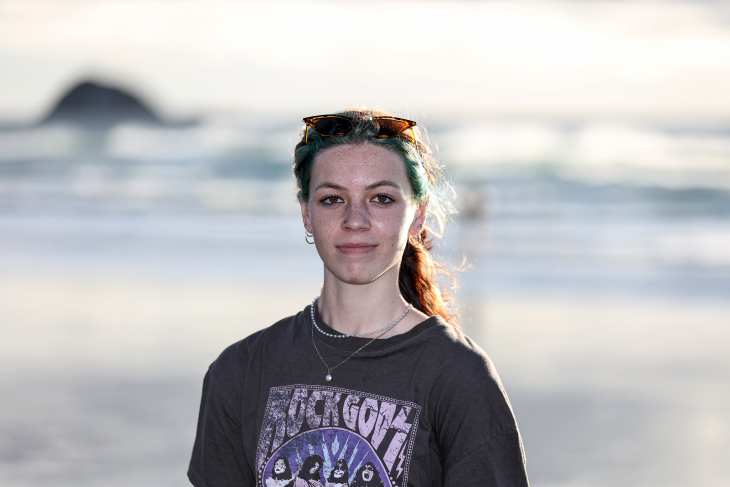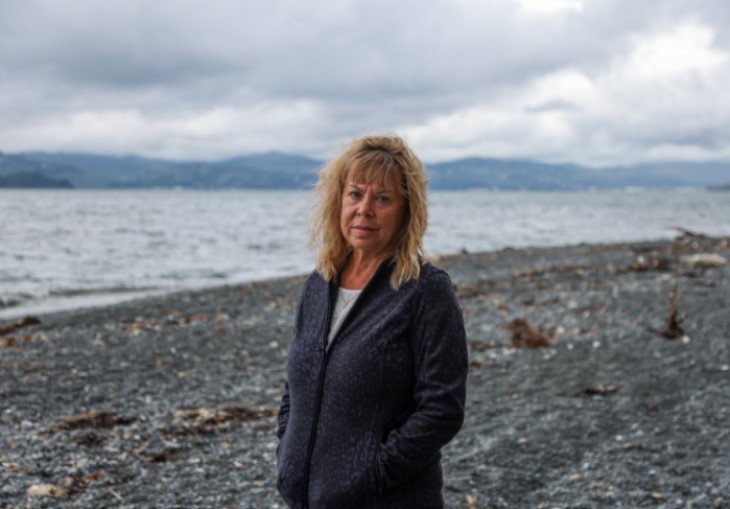Darren’s story: The pain of losing someone at sea
Video transcript for Darren's story
VOICE OF DARREN GUARD, MARINESAFE FOUNDER
I rang my wife at one o’clock in the morning to say goodbye. That’s how serious I thought it was.
It was pretty scary. You just go into robot-mode and all your training and education kicks in.
Took a bit of time, we thought through, implemented the steps and we’re here today.
We’re New Zealand’s oldest European fishing family, been fishing since 1827. So I’ve come up from crew to skipper to vessel owner. And commercial fishing has just been part of our lives all along.
My father was fishing, my grandfather was building boats, my two uncles were fishing. So obviously I was going fishing.
There’s something special working in a family business with your family.
Fishing is recognised as one of the most hazardous industries on earth. Up to 100,000 commercial fisherman a year, globally, die. It’s quite a number and I’ve certainly seen a lot of friends and family injured and lost.
TEXT ON SCREEN: To help avoid injuries and loss of life, Darren has set up MarineSAFE – an online health and safety programme.
TEXT ON SCREEN: Supported by ACC and the NZ Federation of Commercial Fishermen, MarineSAFE provides video-based training for all fishers.
If a fisherman gets badly injured or disappears, it doesn’t really matter where they are in the country, the whole industry feels it.
I get emotional when I think about it, even if I didn’t know them, because it’s such a close-knit family.
Lost at sea is every family’s fear because you don’t get them back quite often and that’s really, really hard to deal with.
TEXT ON SCREEN: Darren’s family nearly faced that reality when a vessel he was skippering began taking on water in the Cook Strait.
TEXT ON SCREEN: Fearing the worst, he rang his wife to say goodbye.
VOICE OF KAREN GUARD, DARREN’S WIFE
Yes, that was pretty shocking. It’s not how you’d like to be woken up in the middle of the night.
But I spent a few hours awake there praying and then all of a sudden had this feeling of peace. I figured, ‘He’s either safe or he’s gone, so I can get to sleep now’.
VOICE OF DARREN
If I can stop one person making some of the mistakes I made, well then, job done.
VOICE OF KAREN
It’s something he’s very passionate about and being out there and knowing what they’re up against makes a big difference to people that have got all the book knowledge but don’t have that practical experience.
VOICE OF DARREN
Yeh, walking a day in the shoes is important.
TEXT ON SCREEN: His own harrowing experiences and the sad stories of lost friends are why Darren is so passionate about MarineSAFE.
People die but they should never die at work. They should die warm and happy with a full belly in bed.
The worst thing we can do is say, ‘That will never happen to me’ and, when you start thinking that way, it will happen to you.
Training is so difficult for fishers because they’re at sea and when they’re home they don’t want to be sitting in a classroom. They want to be at home with their family.
So that’s where I thought, ‘Well, online has to be the answer’.
So MarineSAFE is a series of online training video courses.
Sit there and you’ll be able to see different videos on actual vessels and actual people working and doing things safely. It’s actually a tool to show you how to work safely.
VOICE OF DOUG SAUNDERS-LODER, NZ FEDERATION OF COMMERCIAL FISHERMEN PRESIDENT
It was something that we collaboratively talked about on the basis that ACC had some funding available. We thought it would be really important for us to think about delivering those types of messages in a different form.
Darren’s suggestion that we did it through video was gold really because it was something that we could use to good effect. Fishermen by their very nature haven’t got a lot of time and to be able to come up with resources like that really seemed to fit the bill.
TEXT ON SCREEN: MarineSAFE also works with FirstMate NZ – the Seafood Sector Support Network Trust – to cover mental health and wellbeing in the training.
TEXT ON SCREEN: MarineSAFE has proved popular so far. Nearly 800 people have gone through the online training.
VOICE OF DARREN
You’ll be emailed a certificate that you can just put straight in your training folder, add it to your CV and then you can go from one workplace or one vessel to another and you’ve already got that training pathway with you.
TEXT ON SCREEN: Darren has some wise words for looking after your health and safety, whatever industry you work in.
Just ask yourself, ‘If I don’t come home, what does it mean for my friends and family?’ And that’s really what drives me.
Most of us work to provide for the family and be with our friends and have good times. If you’re injured, or lose your life at work, that doesn’t happen anymore.
And think about those you leave behind. Because those you leave behind will pay the price of your poor decision for the rest of their lives.
TEXT ON SCREEN: Partnering with organisations to help keep New Zealanders safe. It’s what we’re doing right now.
Health and safety advocate Darren Guard has lost many mates to the sea and has also come close to losing his own life. So he's used funding from ACC to set up MarineSAFE – an online training programme to help fishers stay safe at sea.
Former fisherman Darren Guard is no stranger to the pain of losing a mate at sea.
Darren, who hails from New Zealand’s oldest fishing family of European heritage, lost 11 people he knew in the space of one year.
So whenever he hears about a tragedy in the fishing industry it hits him hard.
“If a fisherman gets badly injured or disappears, it doesn’t really matter where they are in the country, the whole industry feels it,” the 52-year-old says.
“I get emotional when I think about it, even if I didn’t know them, because it’s such a close-knit family.”
Darren has also come close to losing his own life during many years in the seafood industry.
“Fishing is recognised as one of the most hazardous industries on earth,” says Darren, whose family has been fishing since 1827.
“Up to 100,000 commercial fishermen a year die, globally. It’s quite a number and I’ve certainly seen a lot of friends and family injured and lost.”
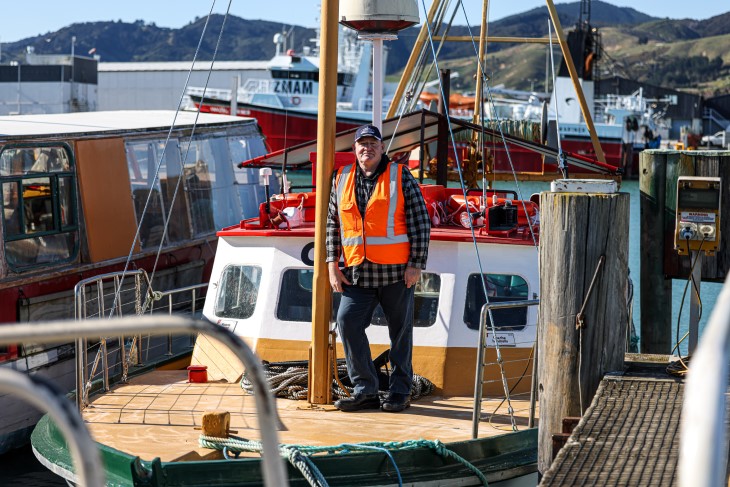
‘I rang my wife to say goodbye’
Darren’s family nearly went through that ordeal when a boat he was skippering began taking on water in the Cook Strait during the hoki-fishing season in 1996.
“I rang my wife at one o’clock in the morning to say goodbye – that’s how serious I thought it was,” he says. “It was pretty scary.”
Wife Karen was shocked to be on the receiving end of such a traumatic phone call.
“It’s not how you’d like to be woken up in the middle of the night,” she says.
“But I spent a few hours praying and then all of a sudden had this feeling of peace – I thought, ‘He’s either safe or he’s gone’.”
Experienced skippering and a bit of luck helped Darren finally return to shore safely that night.
“You just go into robot-mode and all your training and education kicks in,” he says.
“We took a bit of time, we thought things through, we implemented the steps – and now we’re here today.”
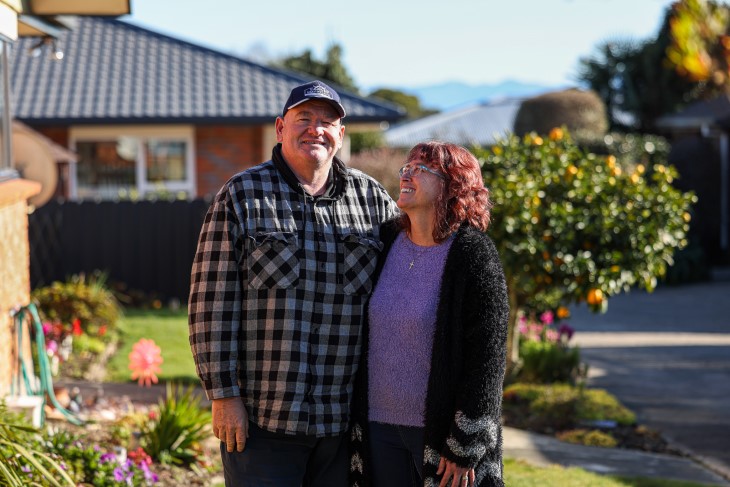
Darren Guard with his wife Karen.
Enough is enough
His own harrowing experiences and the sad stories of lost friends led Darren to decide “enough is enough”.
So the Nelson resident teamed up with the NZ Federation of Commercial Fishermen to apply for a workplace injury prevention grant from ACC.
“It was something we talked about collaboratively after hearing there was some funding available from ACC,” says Doug Saunders-Loder, president of the NZ Federation of Commercial Fishermen.
The application was successful and the funds provided by ACC were used to create MarineSAFE, an online health and safety programme for people working in the fishing industry.
“We thought it would be really important to deliver those types of messages in a different form,” Doug says.
“Darren’s suggestion that we did it through video was gold. Fisherman don’t have a lot of time so that really seemed to fit the bill.”
MarineSAFE – Health and safety training for the fishing industry
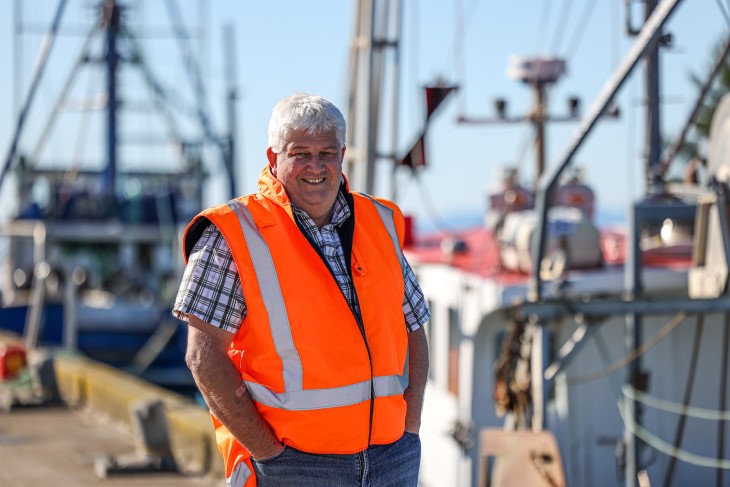
Doug Saunders-Loder, president of the NZ Federation of Commercial Fisherman.
Making a difference with an online approach
MarineSAFE is a series of online training videos that show how to work safely on fishing vessels. The modules focus on a wide range of relevant topics, such as machine safety, wharf safety, knife safety, risk management and life-saving equipment.
The MarineSAFE team also works with FirstMate NZ – the Seafood Sector Support Network – to cover mental health and wellbeing in the training.
In putting together the programme, Darren felt an online-based learning option would work best for the fishing community, rather than in-person training.
“Training is so difficult for fishers because they spend so much time at sea. When they’re home, they don’t want to be sitting in a classroom – they want to be spending time with their family,” he says.
“So that’s where I thought, ‘Well, online has to be the answer’.”
It’s filling a great need. Despite commercial fishing being such a hazardous industry, only half of all workers in the industry report having gone through health and safety training within the past year.
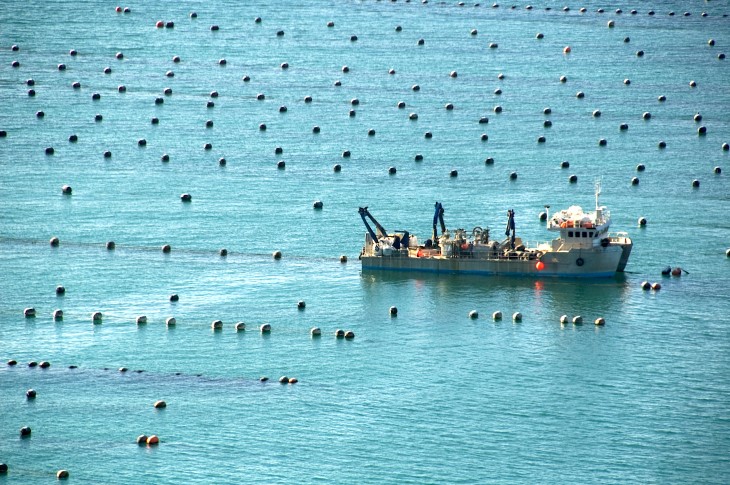
The modules have proved popular so far with nearly 800 people completing the training, which is free of charge.
Darren is well-placed to lead the MarineSAFE content. Aside from his first-hand experience as a veteran fisherman, he also runs Guard Safety – a Nelson-based business that helps drive safety culture change across New Zealand workplaces.
“The beauty of MarineSAFE is that you’ll be emailed a certificate that you can just add to your CV,” he says.
“Then you can go from one workplace or vessel to another and you’ve already got that training pathway with you.”
Paying the price for a poor decision
After seeing the impact of so much tragic loss on families he knows, Darren is hugely passionate about saving lives and preventing whānau from losing a loved one.
“If I can stop one person making some of the mistakes I made, then it’s job done,” he says.
“Lost at sea is every family’s fear because you don’t get them back quite often and that’s really hard to deal with.”
Darren says his own near miss all those years ago highlights the importance of health and safety training, and making sure you’re ready for the sea – whether as a commercial fisherman or a recreational boatie.
“Just ask yourself, ‘If I don’t come home, what does that mean for my friends and family?’
“Those you leave behind will pay the price of your poor decision for the rest of their lives.”
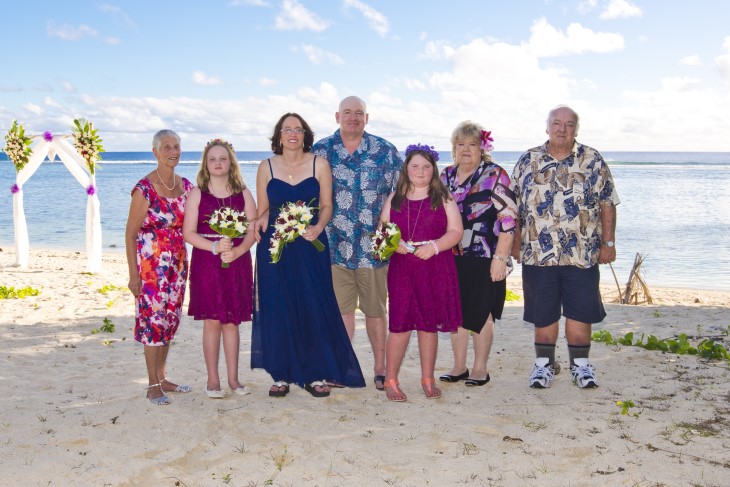
Darren Guard with his family.
Saving lives this summer
Darren is far from alone in knowing many people who have gotten into trouble in the water.
We experienced our worst drowning year in a decade in 2022, with 94 people losing their lives across the motu.
With over 60 lives lost already this year and Kiwis about to flock to the sea as the weather gets warmer, the need to be aware of water safety is greater than ever.
Projections from Water Safety New Zealand (WSNZ) show we could be about to experience our most devastating year of drowning fatalities this century with a predicted 100 lives to be lost.
“It’s imperative for every New Zealander to approach the water with respect,” WSNZ chief executive Daniel Gerrard says.
“It’s up to each of us to take collective responsibility and make sure our loved ones get home safe.”
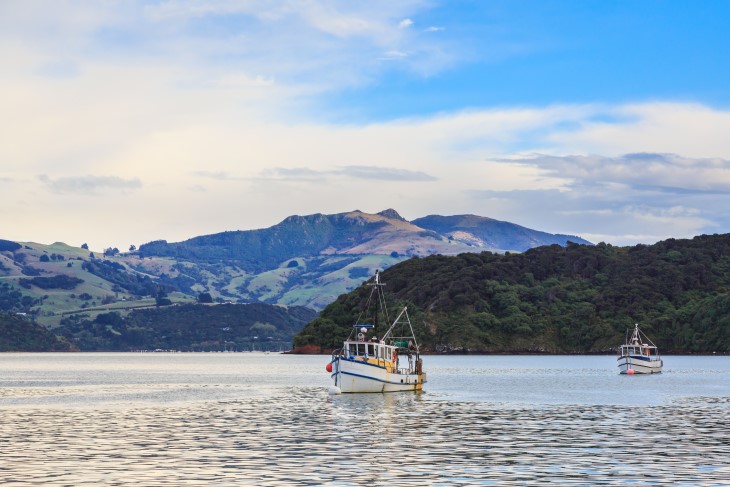
Water Safety Code
- Be prepared – Check the weather, your gear and the water conditions
- Look after yourself and others – Adults, not children or teenagers, should always supervise little people and children around water
- Be aware of the dangers – Check for rips and currents, snags and rocks, and don’t consume alcohol before a swim, dive or going fishing
- Know your limits – Do you know how to swim? If not, stay out. Remember, you will never be able to swim in the ocean as well as in a pool and cold water will make you tired
Maritime NZ advice for safe boating
- Ensure everyone wears a life jacket that fits for the whole trip, even the skipper
- Always take two waterproof ways to call for help
- Check the marine weather forecast before heading out on the water



